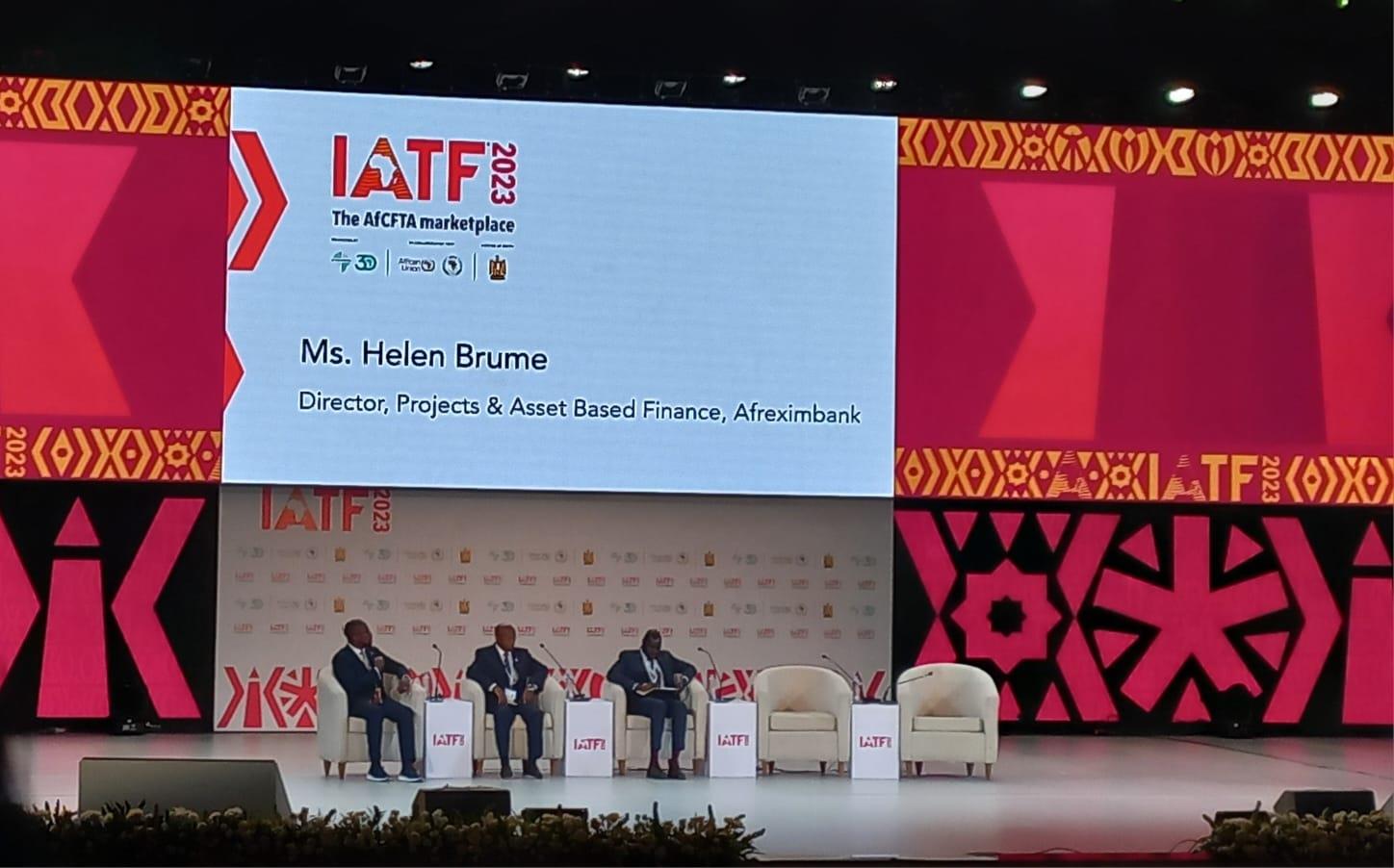
Intra-African Commerce Only 17% Of Continent's Foreign Trade Volume: ECS
Basha made these remarks during the session on“Afreximbank Initiatives to Drive Intra-African Trade” on the third day of Intra-African Trade Fair 2023 (IATF2023). He said that the IATF is a vital platform for the countries of the continent to explore the opportunities available in the continental markets, which would enhance the prospects of development and integration.
He also highlighted the challenges that hinder continental integration, such as the lack of infrastructure, information, and market linkages. He urged the governments of African countries to complete the negotiation process and implement the African Continental Free Trade Agreement (AfCFTA), which he hoped would have a positive impact on achieving continental integration.
Jean-Louis Ekra, the former President of African Export-Import Bank (Afreximbank) and Deputy Chairperson of the IATF Advisory Council, said that the bank has a clear strategy to develop intra-African trade in parallel with the challenges faced by the region, ranging from the COVID-19 pandemic to the Russian-Ukrainian crisis to the current geopolitical crises.
Ekra added that the colonial legacy of the African countries affected their development, especially in terms of intra-regional trade and the export of raw materials in their primary form. He expressed his confidence in the AfCFTA as a game-changer for the African continent to overcome the challenges and cope with the climate changes.
He pointed out that the Afreximbank is working to achieve integration with African countries through the AfCFTA, which is one of the 2063 sustainable development strategies adopted by the African Union and the bank. He also revealed that the bank is interested in supporting intra-African investments as one of the means of developing intra-African trade, as well as relying on training platforms and fostering relations between African countries by creating a framework for joint investments that would increase exports, open new markets, and complete development paths.
Africa has abundant energy and mineral resources, but it needs to develop its local manufacturing and industrialisation capacities to maximise their benefits. This was the main theme of the session on“African Energy Transition and African Industrialisation” at the Africa Investment Forum 2023.
Helen Brume, Director of Project and Asset Based Finance at Afreximbank, said that Africa holds 8% of the world's proven oil reserves and 7% of the natural gas reserves. She also said that minerals account for 70% of Africa's exports and 28% of its GDP. She stressed the need to create added value from these resources within the continent, rather than exporting them raw.
She said that Afreximbank has launched several programmes to finance and develop projects that enhance local manufacturing capabilities in Africa. She estimated that this could save about $500m annually and reduce the drain of foreign exchange. She also said that this would help alleviate poverty, especially for the young population of the continent, which has an average age of 28 years.
Ainojie Irune, Executive Director of Oanodo Plc, said that Africa has signed many agreements for the green energy transition and development of the continent. He said that Africa has 39% of the world's largest resources, including huge mineral deposits, but it still faces food insecurity and underdevelopment. He said that the continent has not utilised its full potential.
Omar Farouk Ibrahim, Secretary General of African Petroleum Producers Association (APPO), said that the continent has to face the climate challenges and the risks of climate change. He said that the continent needs to develop some technologies to cope with the environmental impacts of its energy and industrial activities. He said that the continent has trillions of tonnes of petroleum gas resources, which can be used for manufacturing and other purposes.

Legal Disclaimer:
MENAFN provides the
information “as is” without warranty of any kind. We do not accept
any responsibility or liability for the accuracy, content, images,
videos, licenses, completeness, legality, or reliability of the information
contained in this article. If you have any complaints or copyright
issues related to this article, kindly contact the provider above.

















Comments
No comment